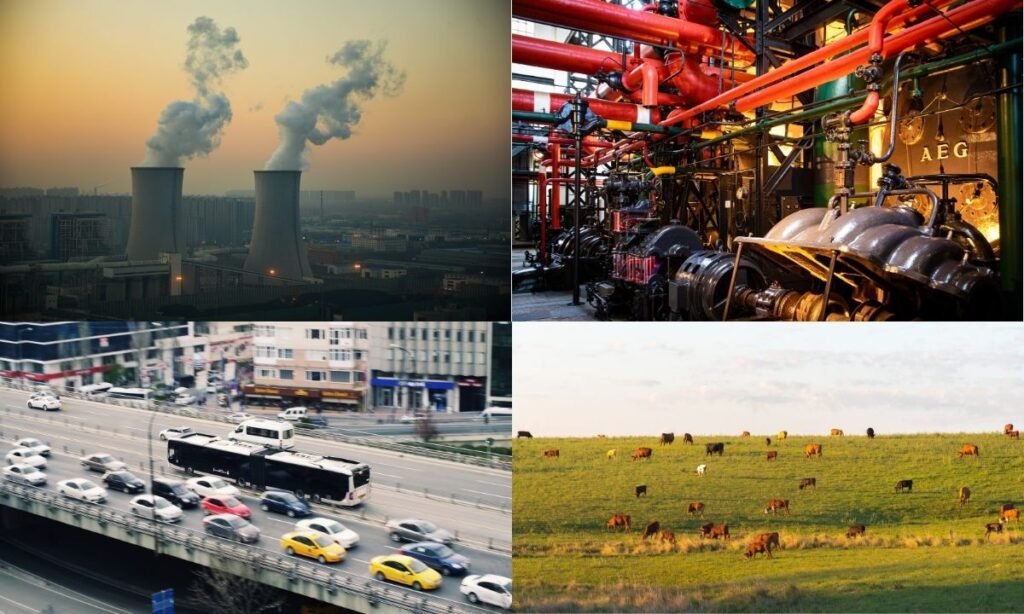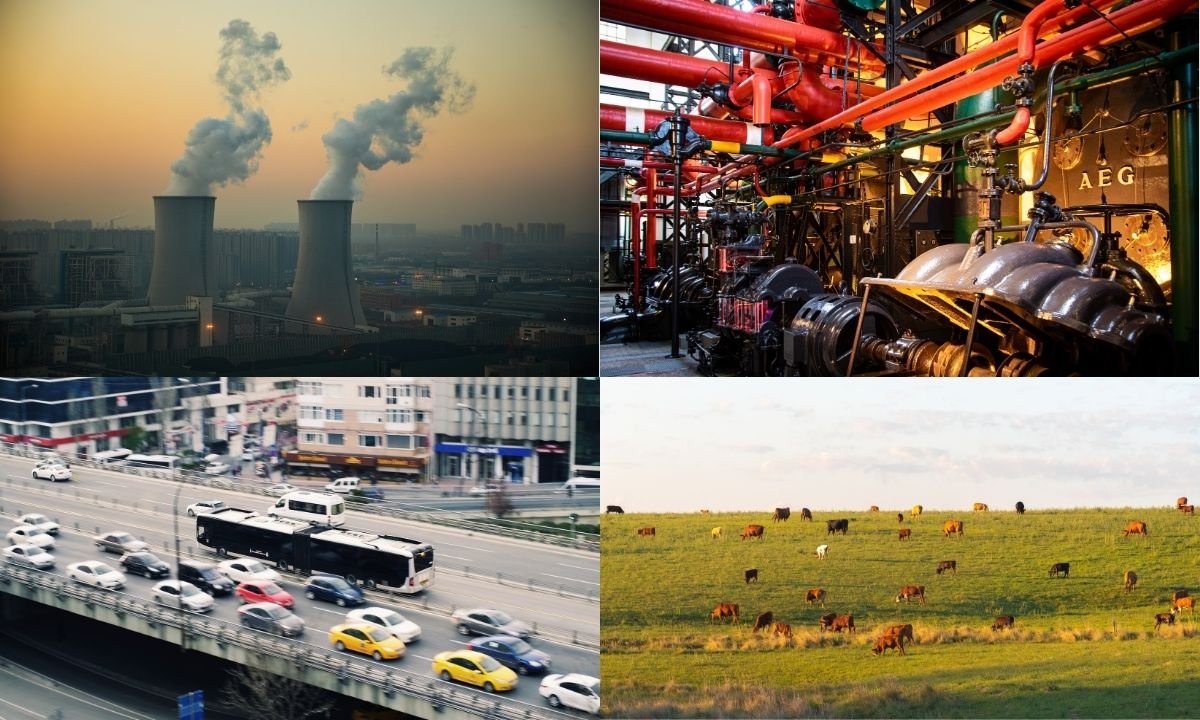Can Environmental Pollution Be Solved?

Environmental pollution is one of the most pressing challenges humanity faces today. From the air we breathe to the water we drink, the repercussions of pollution impact our health, biodiversity, and the stability of our planet. While it may seem like an overwhelming issue, it is important to recognize that there are real and effective solutions that can be implemented immediately. The journey to a cleaner environment does not solely revolve around recycling or reducing plastic use, although those are beneficial steps. It requires understanding the impact of our daily actions and how we can change them. In this article, we will explore concrete strategies that individuals, businesses, and communities can adopt to combat pollution effectively. The key is to act today.

What is Environmental Pollution and Why is it an Urgent Problem?
Environmental pollution refers to the alteration of ecosystems due to the presence of toxic substances, waste, or changes in the environment that negatively affect living organisms. This issue not only harms biodiversity but also impacts human health and climate stability. Alarmingly, over 99% of the global population inhales air with dangerous pollutant levels, significantly increasing the risks of respiratory and cardiovascular diseases.
Current Data on Pollution
- The air we breathe is contaminated. The vast majority of people across the globe are exposed to dangerous pollutants that compromise their health.
- Drinking water is not always safe. In various regions, millions are consuming water laced with hazardous chemicals, including carcinogens from deteriorating piping systems.
- Plastic has invaded our oceans. Over 14 million tons of plastic enter marine environments each year, posing severe threats to marine life and entering the human food chain.
- Climate change accelerates pollution. Rising temperatures exacerbate the dispersion of pollutants in both air and water, intensifying negative effects on ecosystems.
Urgent Issue
In France, significant concern has emerged regarding the contamination of drinking water due to the degradation of PVC pipes installed before 1987. According to the news outlet Le Monde, around 600,000 people may be consuming water tainted with vinyl chloride monomer (VCM), a chemical compound recognized as carcinogenic by the International Agency for Research on Cancer (IARC).
This issue was uncovered through recent studies across different regions, revealing that the material of these aging pipes is breaking down, releasing toxic particles into the drinking water supply. In light of these findings, communities are demanding urgent action from authorities, as prolonged consumption of this water could elevate the risks of liver cancer and other health complications.
This case highlights that environmental pollution not only harms nature but can also escalate into a public health crisis with severe consequences. It underscores the necessity for monitoring and modernizing drinking water infrastructure in various countries to prevent similar situations in the future.
Immediate Actions to Reduce Pollution
Combating environmental pollution requires concrete actions across different sectors. Here are some practical solutions that can be implemented at home, in businesses, and at the governmental and community levels.
What You Can Do at Home
Reducing Waste and Recycling Effectively
- Waste Separation: Sort your trash into organic, recyclable, and non-recyclable categories. This makes recycling easier and reduces the volume of waste ending up in landfills.
- Composting: Transform organic waste into compost to enrich the soil for gardens or plants, thereby minimizing household waste.
Sustainable Alternatives in Product Consumption
- Responsible Purchasing: Choose products with minimal or biodegradable packaging, and prioritize locally produced items to lessen the carbon footprint related to transportation.
- Reusable Products: Replace disposable items with reusable options, such as water bottles, fabric bags, and durable kitchen utensils.
Conserving Energy and Water through Simple Changes
- Energy Efficiency: Use LED bulbs, unplug electronic devices when not in use, and take advantage of natural light whenever possible.
- Water Conservation: Repair leaks, install low-flow devices on faucets and showers, and collect rainwater for non-potable uses.
How Businesses Can Reduce Their Impact
Success Stories of Companies Reducing Their Ecological Footprint
- Naturgy: This company has increased its capacity for renewable gas injection by over 30% in the last year, preventing the emission of 40,500 tons of CO₂ annually.
Implementing Circular Economy and Renewable Energy
- Circular Economy: This approach encourages the reuse and recycling of materials in production processes to minimize waste.
- Renewable Energy: Companies should invest in clean energy sources such as solar and wind to reduce dependence on fossil fuels.
Economic Benefits of Corporate Sustainability
- Cost Reduction: Energy efficiency and sustainable resource management can lower operational expenses.
- Brand Image Improvement: Eco-friendly practices attract socially conscious consumers and can increase customer loyalty.
Measures Governments and Communities Can Take
Examples of Successful Policies in Different Countries
- Incentives for Renewable Energy: Some nations provide subsidies and tax benefits to promote the adoption of clean energy sources.
- Emission Regulations: Enforcing strict standards to control industrial and vehicular emissions is essential.
How Cities are Implementing Clean Transport and Energy
- Efficient Public Transport: Developing public transit systems that reduce reliance on private vehicles is crucial.
- Infrastructure for Electric Vehicles: Installing charging stations encourages the use of electric cars.
Citizen Movements Achieving Significant Changes
- Community Initiatives: Local groups organize clean-up efforts, awareness campaigns, and urban agriculture projects.
- Participation in Environmental Policies: Citizens advocate for environmental laws through petitions and legislative processes.
Tools and Resources to Act Today
To effectively tackle environmental pollution, it is crucial to have accessible tools and resources available globally. Here are some notable options:
Apps and Platforms to Measure Environmental Impact
- ClimateHero Ecological Footprint Calculator: This online tool allows you to assess your ecological footprint in about 5 minutes, providing personalized recommendations to reduce your environmental impact.
- Manglai's Environmental Calculator: With this free calculator, you can measure your emissions and learn how to reduce your environmental footprint in under 5 minutes. manglai.io
International Organizations You Can Get Involved With
- World Wildlife Fund (WWF): One of the largest and most respected conservation organizations globally, WWF works in over 100 countries to protect biodiversity and reduce humanity's ecological footprint.
- Greenpeace International: Active in more than 55 countries, Greenpeace is renowned for its environmental activism and campaigns addressing climate change, deforestation, and pollution.
- The Nature Conservancy: Founded in 1951, this nonprofit organization operates in 76 countries and territories, focusing on conserving critical lands and waters for nature and people. ecoosfera.com
Downloadable Guides with Concrete Steps
- EcoSteps A.C. Environmental Calculator: This tool helps you calculate your environmental education and culture level, as well as your water and CO₂ footprint, providing recommendations for improvement. ecostepsac.org
- ClimateHero Environmental Calculator: Assess your environmental impact in just 5 minutes and receive practical tips to reduce your emissions. calculadora-ambiental.climatehero.org
Frequently Asked Questions
How can we combat environmental pollution?
To combat environmental pollution, it is crucial to adopt sustainable habits such as reducing plastic consumption, using eco-friendly transportation, recycling, and supporting renewable energy initiatives. Advocating for effective environmental policies and participating in conservation initiatives also helps minimize human impact on the planet.
What are the 10 tips for caring for the environment?
Reduce, reuse, and recycle materials whenever possible.
Save water by turning off taps and collecting rainwater.
Utilize renewable energy sources such as solar or wind.
Opt for sustainable transport methods like cycling or public transit.
Avoid single-use plastics.
Support brands and companies with environmental responsibility.
Plant trees and protect green spaces.
Consume local products with a lower ecological impact.
Minimize meat consumption and support sustainable farming practices.
Participate in cleanup campaigns and environmental volunteering.
What can we reduce to avoid pollution?
Reducing the consumption of resources such as plastic, water, and energy is essential in decreasing environmental pollution. We can also limit food waste, avoid products with unnecessary packaging, and minimize fossil fuel use by opting for more eco-friendly alternatives like electric or shared mobility.
Leave a Reply